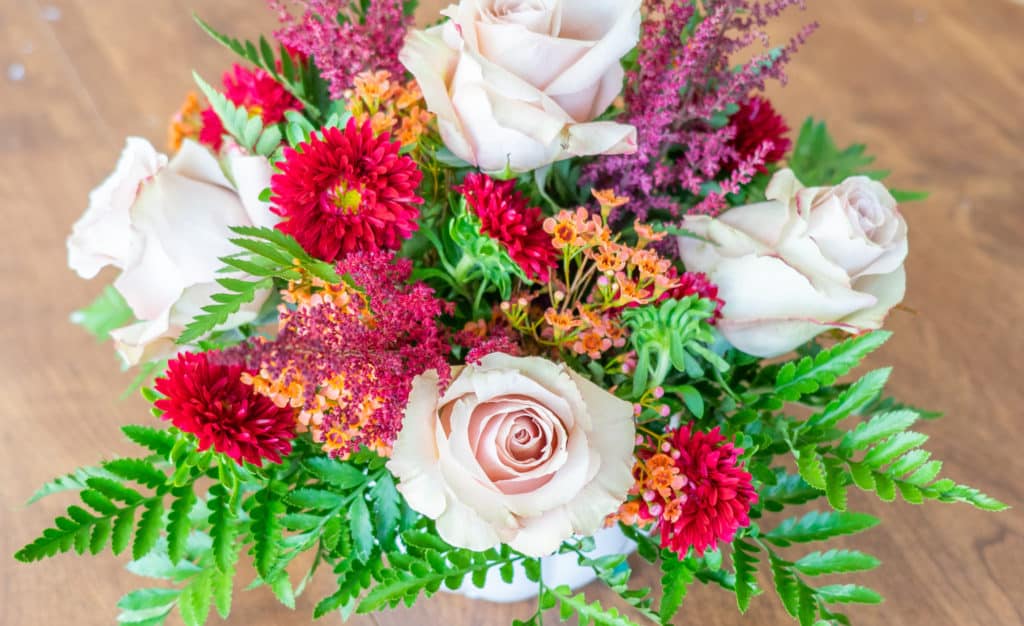Flowers aren’t just a way of communicating with others, they’re also known to provide some potential psychological benefits as well! Through their scents, colors, and arrangements, flowers can actually help improve your mental health by just being around. Keeping flowers and plants in your home or office can help you feel more relaxed and be more productive. At Every Day Bouquet, we believe that flowers don’t only belong to special occasions. And the mental health benefits of flowers give us the science to back up our belief!
Let’s take a look at three ways flowers can benefit and improve mental health.
Mood Enhancement
The scent of flowers, particularly those with pleasant and floral aromas, has been found to enhance mood and promote positive emotions. The olfactory system, which is responsible for our sense of smell, is closely linked to the brain’s emotional center, the limbic system. Floral scents can trigger the release of neurotransmitters like serotonin and dopamine. These two things contribute to feelings of happiness and well-being.
Colors can also help enhance your mood. Bright colors inspire feelings of positivity, and cool colors can help you relax and feel calm in a room. You can choose your flower arrangements based on how you’re feeling today.
Nature’s Stress Relievers
Certain floral scents, like lavender, chamomile, and jasmine, can relieve nervous tension and help you focus. Lavender has long been used as a natural remedy for headaches and migraines and can even minimize feelings of depression. Jasmine has similar effects and naturally uplifts your mood to make you feel more confident and optimistic. They can also help you drift off to sleep and improve your sleep quality. It’s no surprise these flowers are common in “sleepy time” teas from many brands!
A Creative Outlet
Arranging flowers is a creative outlet that many people find therapeutic. When you sit down to engage in a creative task, you fall into something called a flow. A “flow” is a psychological term that describes a state that regulates your breathing patterns, slows your heart rate, and boosts your mental state. When in a flow, you often lose track of time because your focus is completely on the task in front of you. When you complete the task, you feel relaxed and refreshed, and ready to tackle more difficult tasks.


